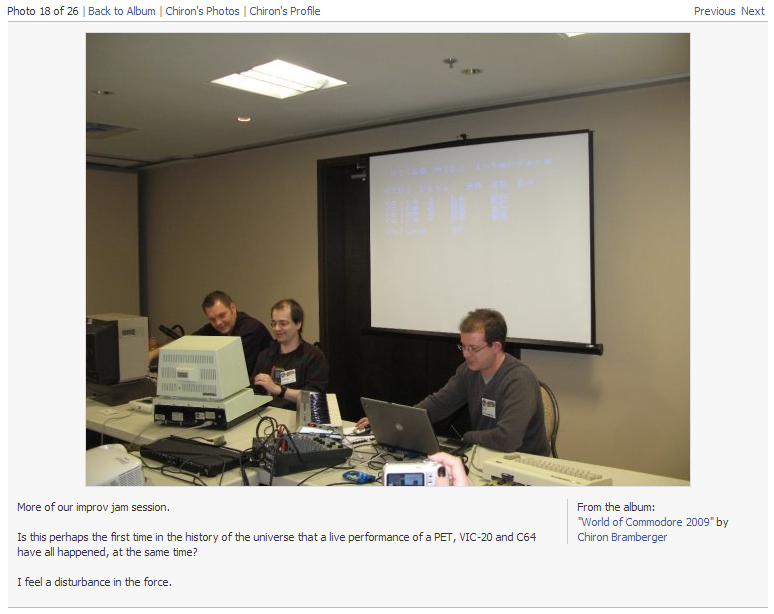Retro Computing Jam Session
Have you ever had that feeling that somewhere out there, people are jamming on a Vic-20, a PET and a Commodore 64, possibly in some kind of classroom setting?

The middle computer would be Petsnyth‘s first (I assume) public performance.